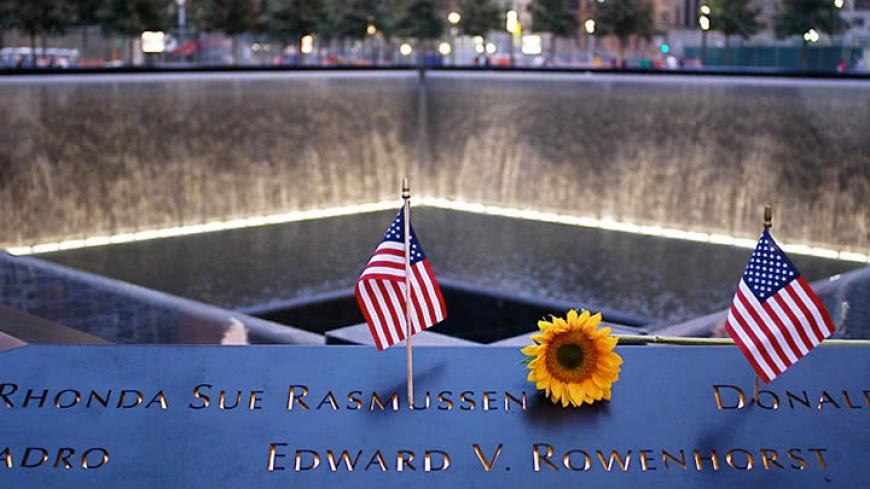Former FBI Investigator Lee Walters on What’s Next for 9/11 Lawsuits

With the passage of the Justice Against Sponsors of Terrorism Act (JASTA)—allowing victims of terror to sue the foreign governments responsible—came a tidal wave of questions and predictions about what could happen if Americans filed lawsuits against Saudi Arabia for 9/11.
To better understand the potential implications of the bill and the ins and outs of investigating foreign governments, we spoke with Lee Walters, a legal investigator for Morgan & Morgan's Whistleblower team. Working alongside qui tam attorneys like James Young, along with government prosecutors, his experience developing evidence and extracting details from witnesses helps whistleblowers recover taxpayer money.
Previously, Lee was a Supervisory Special Agent for the FBI, making him uniquely qualified to comment on and tackle complex investigations like those associated with JASTA. Throughout his 24 years with the agency, he investigated healthcare and bank fraud, public corruption, and violations of the Foreign Corrupt Practices Act.
JASTA allows civilians to sue foreign governments for acts of terrorism that occur on U.S. soil. Is there any precedent for cases like these?

Yes, there is. One example is the bombing of Pan Am Flight 103 by agents working on behalf of Libya. Bruce Smith, a Pan Am pilot who lost his wife on the flight, filed suit against the country of Libya under the Foreign Sovereign Immunities Act.
The lawsuit, filed in federal court, was initially dismissed on the grounds that Libya was a sovereign state and had immunity under federal law. After lobbying Congress to change the law, the lawsuit was allowed to go forward and the country of Libya ultimately paid a $2.7 billion settlement to the victims of this terrorist act.
How is investigating a foreign government different than any other defendant?
Investigating a foreign government can be tricky for an investigator as it can be challenging to get access to the kinds of evidence normally sought. A foreign government can put up roadblocks to an investigator looking for evidence such as banking information, electronic communications, and internal written documentation.
The key to success in these investigations, as is the case with any investigation, is developing relationships with individuals who can provide access to the information sought.
Do you think Saudi Arabia’s relationship with the U.S. will affect legal proceedings in any way?
I don’t. JASTA does not specifically mention Saudi Arabia anywhere in the law. And, soon after the president's veto was overridden with overwhelming bipartisan support, Congress agreed to a $1.15 billion sale of arms to Saudi Arabia as a show of goodwill.
"[Saudi Arabia] will need to cooperate, to some degree, in any lawsuits that are brought under JASTA."
Politically, Saudi Arabia has to speak out; but, to maintain the kind of relationship with the U.S. necessary for the continuation of the monarchy, they will need to cooperate, to some degree, in any lawsuits that are brought under JASTA.
Is there enough declassified information to form a case against Saudi Arabia?
I think the 28 pages released by the House Intelligence Committee in July of this year regarding Saudi Arabia’s involvement in the 9/11 attacks is pretty damning and a great start.
The report found that Omar al-Bayoumi, who some in the report theorized was a Saudi intelligence officer, received large sums of money from the Saudi government and provided substantial support to two of the hijackers while they were living in San Diego.
It also identified two Saudi citizens, Mohammed al-Qudhaeein and Hamdan al-Shalawi, as conducting a dry run for the 9/11 attack in 1999 on a flight from Phoenix to Washington, D.C., which ultimately made an emergency landing after al-Qudhaeein twice tried to enter the cockpit. Both men told the FBI the Saudi embassy in D.C paid for their flights.
This is just one piece of declassified information that is available and I suspect more will be forthcoming.
Is the U.S. government likely to cooperate during the discovery process for the 9/11 lawsuits? Do these cases hinge on the government’s participation?
I think the government will cooperate to an extent. I say this because both political parties were behind JASTA and no one in either party wants to be seen as soft on terrorism.
The U.S. government, of course, is not going to release methods and techniques as part of the discovery process, but can release information that is redacted enough to protect that information while revealing the types of information necessary to prevail in a civil lawsuit.
These cases will not totally hinge on the government’s participation, but it will make the chance of success much greater if the government does participate. Information can be developed that does not require the government’s participation, but the quality of that information will lie on the ability of an investigator to develop relationships with human sources that have access.
How do you think JASTA will affect future litigation?
Opponents of JASTA argued that the law would provoke retaliatory lawsuits against U.S. citizens by other countries, which remains to be seen.
"The passing of JASTA allows for some legal recourse and ultimately closure."
I think JASTA provides a framework for aggressive law firms, such as Morgan & Morgan, to work on behalf of the many victims of state sponsored terrorism, which is a problem that doesn’t appear to have an end in sight. I imagine there is nothing worse than losing a loved one to an act of state sponsored terrorism and feeling like you have no recourse. Fortunately the passing of JASTA allows for some legal recourse and ultimately closure.


